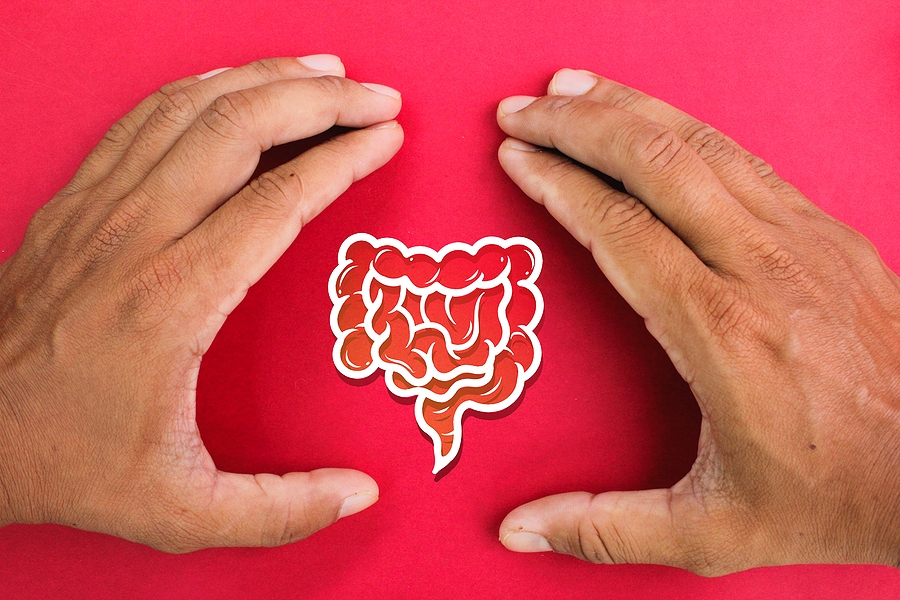The signs of poor gut health and how to improve it
This Morning’s Dr Zoe Williams shares her top tips and advice for a healthy gut
We tend to be more aware of aspects of our health that we can see – but your gut, and how you look after it this summer, could have a bigger impact than you think.
“Although we can’t see our gut, it does influence the way that our bodies look on the outside as well,” said GP Dr Zoe Williams, one of the resident doctors on ITV’s This Morning.
The health of our gut isn’t just about digestion, either. It’s closely linked to just about every system in the body, including skin, immunity, mood, and weight management, Williams explained.

Signs of poor gut health can include bloating, diarrhoea, constipation, abdominal discomfort. However there maybe less obvious signs too, Williams noted, such as general fatigue, feeling sluggish, low or lacking in energy, or your skin feeling unhealthy.
According to new research by Activia, 82% of Brits agree it’s important to look after gut health, but nearly a half (47%) don’t know where to start.
There’s growing evidence around the links between general health and the gut, and experts believe getting good sleep and regular exercise play a part. But, what else do you need to know?
Gut health, weight and diet
“Gut microbiome – the community of largely bacteria but also other microbes, like viruses, fungi, parasites that live in our gut – produce chemical signals which communicate with our brain and other parts of our body, and actually can send hunger signals as well,” said Williams, 43. “The make up of that microbiome can even influence hunger and food choices.
“If we feed our gut microbiome well – with a diet that’s high in fibre with a diverse range of different types of plant fibres, including as many different varieties of fruits, vegetables, whole grains, nuts, seeds and legumes as possible – those ‘gut bugs’ actually ferment fibre on our behalf, because humans can’t digest certain types of fibre.”
Gut health and stress

In our modern lives, we tend to have micro-doses of stress many times throughout the day, every day, Williams noted: “And as human beings, we’re not adapted to deal with that very well”.
She using breathing techniques to stay calm during her work as a GP.
“When we’re in that calm side of our nervous system (the parasympathetic), our body is better able to digest our food. Breathing exercises are something people can do multiple times a day. And it’s something I do between patients actually, I often do box breathing.” With this method, you breathe in for four counts, hold your breath for four counts, exhale for four counts, and then hold after your exhale for another four counts.
It’s a two-way street when it comes to stress and the gut – and improving your diet can also help with stress.
“The gut and the brain are physically connected by a nerve called the vagus nerve, [which] sends chemical messages to each other,” Williams added. “By making changes to improve your diet in order to try and support your gut microbiome, that in itself can actually also have an impact on on stress.”
Summer travel can play havoc
When it comes to travel, Williams said: “Some people are more affected than others, but it can really upset the gut.”
From different time zones and foods, to having more alcohol and the effects of flying, it’s no surprise if you get more gut symptoms abroad.
“I’m absolutely not the sort of person to say, ‘Don’t have a glass of wine or don’t have those extra croissants’, but you can try and combat it but making sure you’re really well hydrated and making sure you’re still getting in lots of fruit and vegetables,” Williams added.
And if you’re travelling to a different time zone? “Try and get onto that time zone earlier. Sometimes people stay on a UK time until their second day, but if you can start living life according to the time zone you’re travelling to before you set off, your gut is more likely to adapt to that.”
The power of a good diet
Guts are creatures of habit, so while you may want to overhaul your diet, it’s a good idea to make changes gradually. “They don’t really like things to change too quickly, and they thrive when we have a very regular eating pattern and a good window of fasting, so it’s best to try not eat for at least two hours, ideally three hours before you go to bed at night,” suggested Williams.
The main way to improve gut health is increasing dietary fibre intake – with a focus on variety. “We should be able to get 30 grams of fibre a day, and less than 10% of us actually manage that,” said Williams. “If you do it regularly, it can make a huge difference”.

Kimchi is great for your gut
Switch up everyday staples – like white rice for brown rice, or kidney beans for mixed beans.
“Include probiotics in your diet, yoghurts and kombucha, kimchi, sauerkraut, certain types of cheeses… you can use kombucha to make a salad dressing,” she added. “In summer, with the warmer weather, berries can really support your gut health. I love to eat berries in the summer.”
Hydration also plays a part
Williams continued: “If you’re eating lots of fibre and all the right types of foods, and you’re putting some probiotic foods in there, your body requires enough water to do the mechanical action of breaking it all down, and then to help it travel through the gut in the way that it should.
“If you’re putting all that effort into your nutrition and exercising and sleeping and you just don’t have enough water, then you might not be getting the full benefit,” she warned. “Any drinks that are non-alcoholic count towards your fluid for the day, but watch out for sugar and artificial sweeteners.”
Most people need between one-and-a-half to two litres of fluid a day to stay hydrated, but in hot weather or if you’re very active, then you may need more, Williams noted.
Women can be more prone to gut issues

“What we see clinically is that a lot of [gut] symptoms tend to affect women more,” explained Williams. There’s no definite answer as to why, but women have fluctuating hormones, which she says can cause gut symptoms too.
Prostaglandins, the hormone that causes the womb to contract before menstruation, can make your bowel contract as well. “A lot of women get looser, diarrhoea or some discomfort the week before the period.”
In addition, the postnatal crash after high oestrogen levels during pregnancy can impact gut health. “When you’ve had a baby, trying to have any form of routine yourself in that first few months, eating regularly and sleeping regularly is practically impossible,” Williams added.
“The postnatal period is a really important time for people around the mother to ensure that she is well-nourished with really good quality food, and given time by other people to get the time she needs to rest as well.”
Dr Zoe Williams is working with Activia to coach people on the A-Z of gut health and raising awareness of the gut as fundamental to your overall health.
The Press Association
Latest posts by The Press Association (see all)
- Actor Richard Chamberlain dies aged 90 - March 30, 2025
- 5 new books to read this week - March 26, 2025
- 6 things a physio wishes people over 60 would stop doing - March 25, 2025
- NHS reminder to 7.5m people as Covid-19 jab booking system opens - March 25, 2025
- The truth about cholesterol – what you need to know - March 25, 2025




















